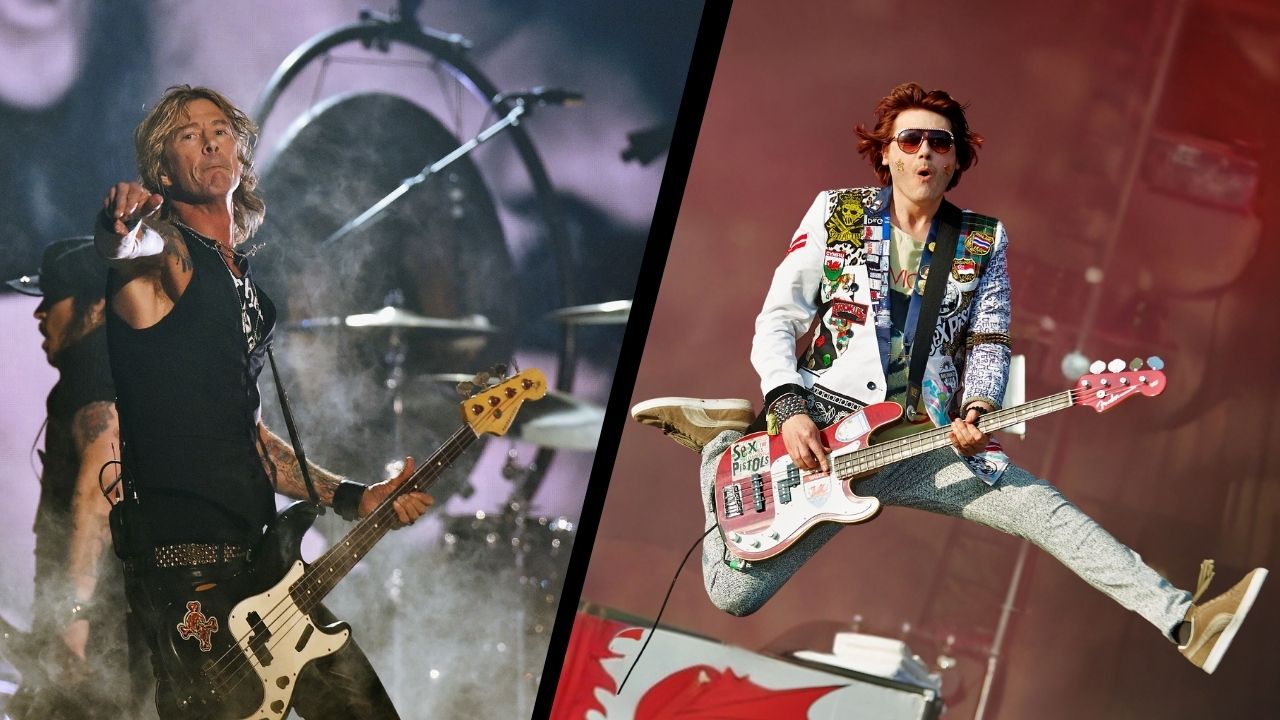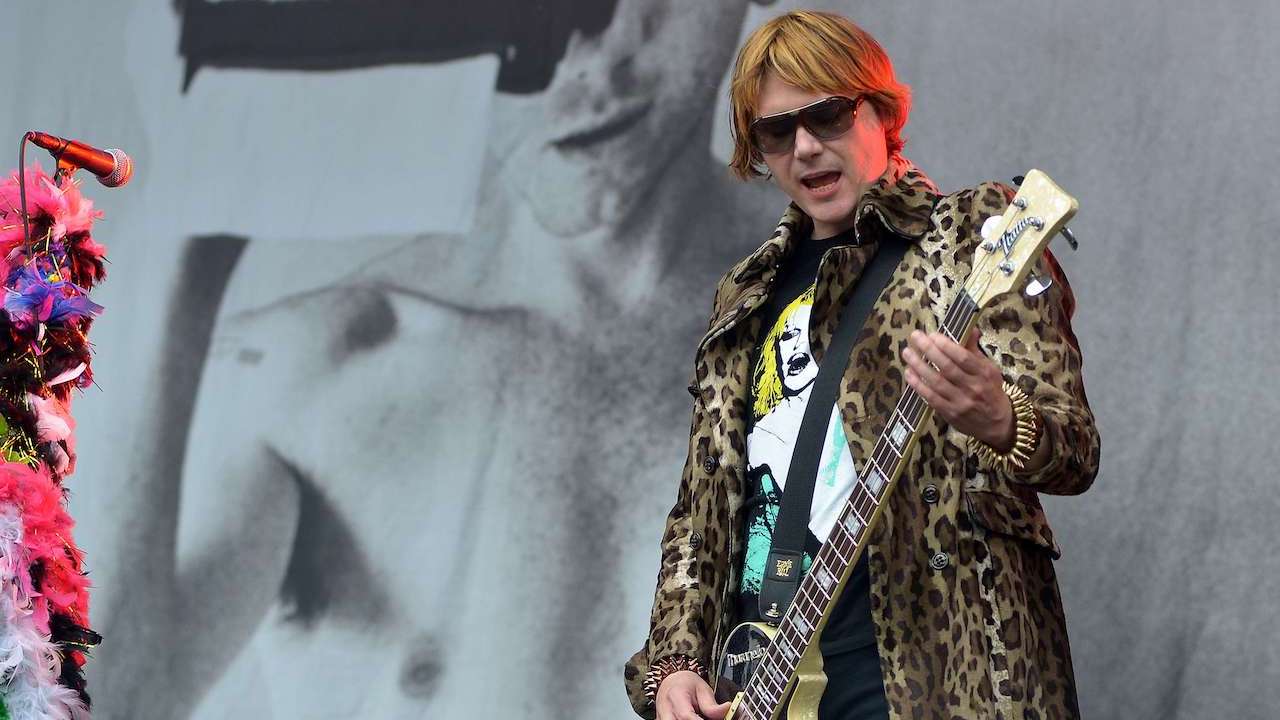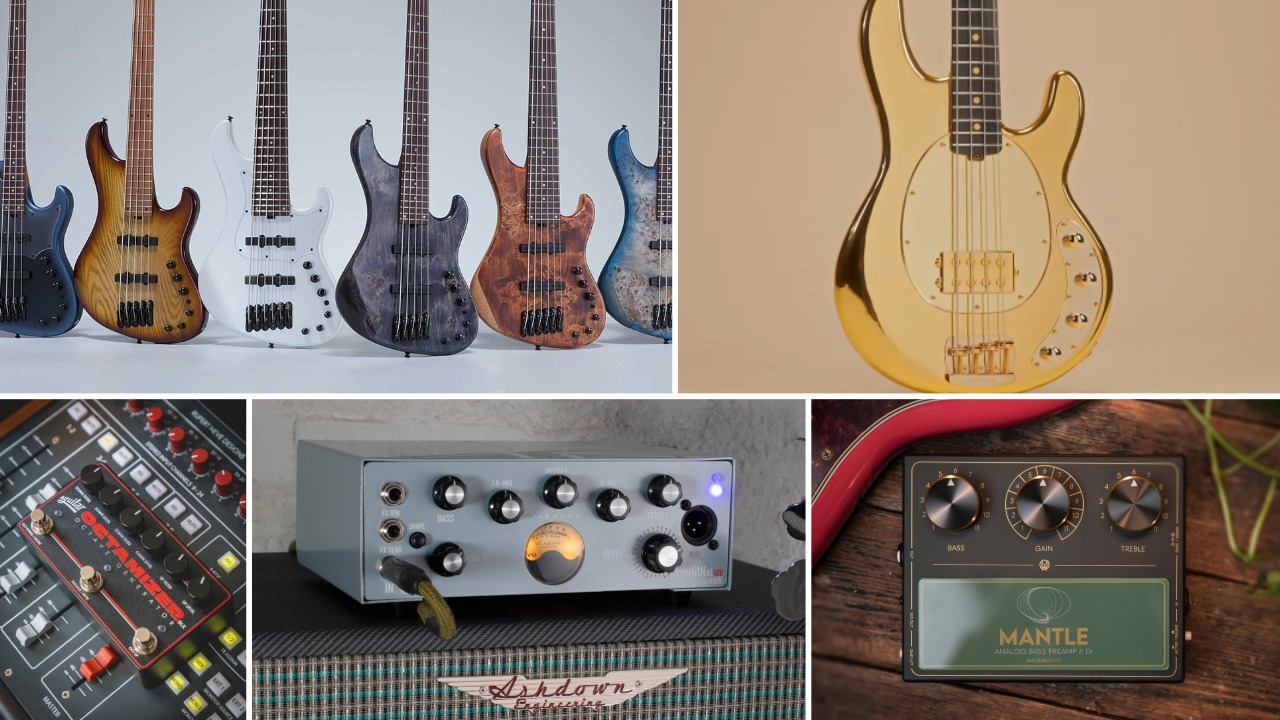“It sounds like Lindsey Buckingham meets The Clash!” That time Duff McKagan played bass for the Manic Street Preachers
Nicky Wire on working with Duff and why Guns N’ Roses are the best band ever

Smashing bass guitars on stage, declaring war on the shadowy elite and insisting that Guns N’ Roses were the best band ever, Nicky Wire was a mighty force when his band Manic Street Preachers emerged some 30 years ago.
Inspired by the celebrations of the tenth anniversary of punk, and a year later by the release of Guns N’ Roses’ Appetite for Destruction, the Manics realised what the music scene at the time was lacking. Armed with heavy make-up, political sloganeering and a diatribe against everyone and everything, the punk-inspired band from the Welsh valleys quickly gained a devoted fanbase.
They listed their favourite albums as including The Clash’s London Calling, True Blue by The Faces, and What’s Going On by Marvin Gaye, with The Black Crowes and Hanoi Rocks also getting a name check.
“Hanoi Rocks gave us Guns N’ Roses,” Wire told BP back in 2014 in defence of his glam rock heroes. “Guns N’ Roses were such a moment for us in the '80s. They really felt like our band, because all the music we loved until that point was kind of second-hand, whereas Guns was the perfect mix of punk and rock ’n roll.”

Speaking of Guns N’ Roses, Wire has fond memories of bassist Duff McKagan contributing to the Manic’s track A Billion Balconies Facing the Sun. “Duff was an absolute blast. We sent the track over to him and he played such a fantastic bassline. The trouble then was the I had to copy it live! He’s very much a plectrum man and I hadn’t used one for around 15 years, as I can’t really connect with my bass without using my fingers. He loved the song, though, and was like, ‘You guys have done it again – it sounds like Lindsey Buckingham mixed with the Clash.’ You can’t get much better than that, can you?”
Throughout his career, Wire has kept his set-up relatively basic, although he did experiment with different pedals early on. “I did have a really good Hiwatt because of John Entwistle, but that got trashed. I also had a Trace Elliot to try and be Duff McKagan, but it was way too twangy. If I’m honest, I have no idea if I have a specific set-up. In the studio I tend to use a lot of Avalon U5 preamp/DIs. Loads of my favourite records from the ‘70s are just straight DI. I’m pretty sure most of London Calling is just straight DI.”
Renowned for playing his bass low, Wire said: “It’s ruined my shoulders and back jumping around with it, but I could never do it any other way. Peter Hook was a hero and even Ronnie Lane had it in a really good place, as did Sid Vicious. Duff plays it low too. I do regret it, as it’s so much easier to play it a little higher.”
All the latest guitar news, interviews, lessons, reviews, deals and more, direct to your inbox!
Asked for advice for aspiring bassists, Wire said: “For me it’s about keeping out of the way of great melodies and great riffs. Obviously, if your band is based around a bass riff like the Red Hot Chili Peppers it’s different, but for us I always felt there was no need for me to interferer with that.”

Nick Wells was the Editor of Bass Guitar magazine from 2009 to 2011, before making strides into the world of Artist Relations with Sheldon Dingwall and Dingwall Guitars. He's also the producer of bass-centric documentaries, Walking the Changes and Beneath the Bassline, as well as Production Manager and Artist Liaison for ScottsBassLessons. In his free time, you'll find him jumping around his bedroom to Kool & The Gang while hammering the life out of his P-Bass.
